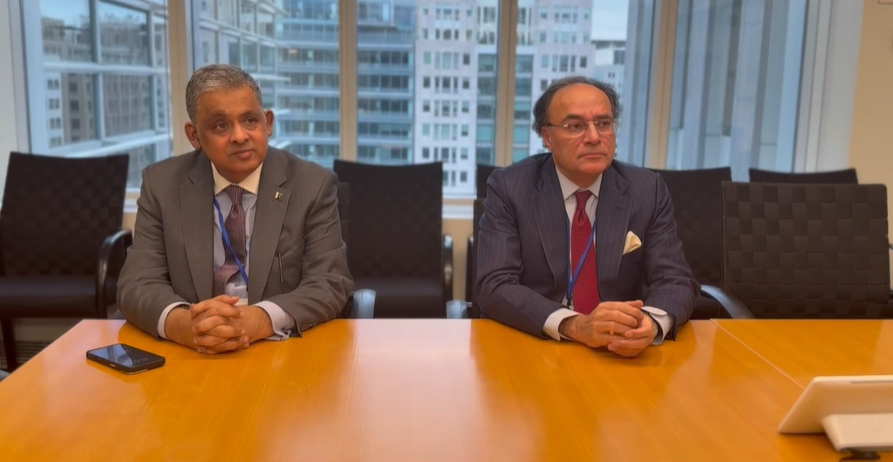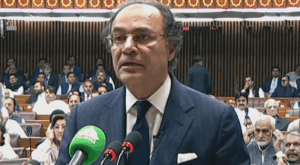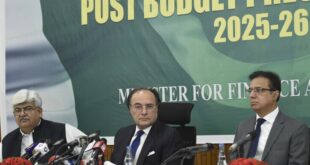
Pakistan is looking to buy more goods from the US, including cotton and soybean, and remove non-tariff barriers to escape President Donald Trump’s high tariffs.
The country is open to foreign direct investments from US firms in its recently opened minerals and mining sectors and is preparing to debut its first-ever Panda bond in the range of $200 million to $250 million this year.
Pakistan is trying to rebuild its economy after coming close to default in 2023, and has won an initial nod for a $2.3 billion IMF loan that will give it funding visibility until 2027.
Pakistan Finance Minister Muhammad Aurangzeb said the South Asian nation is looking to buy more goods from the US and remove non-tariffs barriers to escape President Donald Trump’s high tariffs.
“It’s a bigger canvas that we are looking at in terms of engaging the US,” Aurangzeb said in an interview with Bloomberg News. “We will constructively engage, and we will have a formal delegation coming in,” he said.
Pakistan is looking to buy more cotton and soybean from the US, the finance chief said, adding that it is also in talks to tear down non-trade barriers to open its markets to more US products.
“We can also look at if there are any issues with respect to non-tariff discussion, whether there any onerous inspections at our end for US products, we can obviously view that,” he said.
Islamabad is trying to appease the US to seek reprieve from the 29% reciprocal tariffs imposed by President Donald Trump. While those levies are on hold until July, Pakistan has said it will send a trade delegation to Washington in the coming months to bridge the trade gap. The US is Pakistan’s largest export market with over $5 billion in annual exports as of 2024, while Pakistan’s imports from the US are about $2.1 billion.
The minister said the country is also open to foreign direct investments from US firms in its recently opened minerals and mining sectors.
Aurangzeb, a close aide of Prime Minister Shehbaz Sharif, is in the US for a nearly week-long trip to participate in the Spring Meetings of the International Monetary Fund and the World Bank. The former JPMorgan Chase & Co. banker said that the crisis-ridden nation will tap the international capital markets to secure more funds for a sustainable growth.
“What we are looking for is how we get away from a boom and bust cycle which Pakistan has gone through and get on to a sustainable growth path,” he said.
Pakistan is preparing to debut its first-ever Panda bond in the range of $200 million to $250 million that will likely take place in the fourth quarter of this year, the minister added.
Authorities are trying the rebuild the Pakistan’s tattered economy after it came close to a default in 2023. Last month, the South Asian nation won an initial nod for a $2.3 billion IMF loan that will give it funding visibility until 2027. Last week, Fitch upgraded Pakistan’s credit rating, citing confidence that the South Asian country will be able to sustain reforms under the IMF loan program.
 BeNewz
BeNewz



